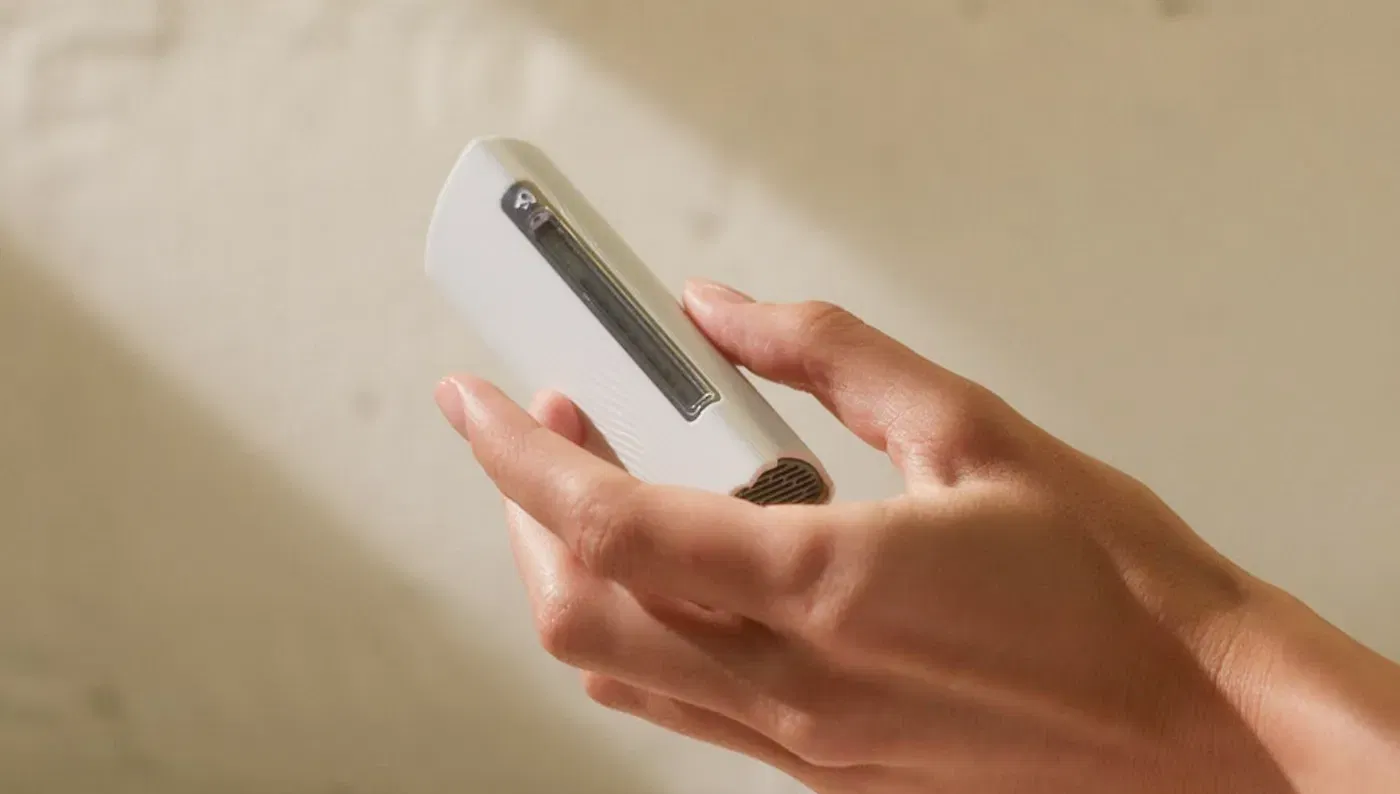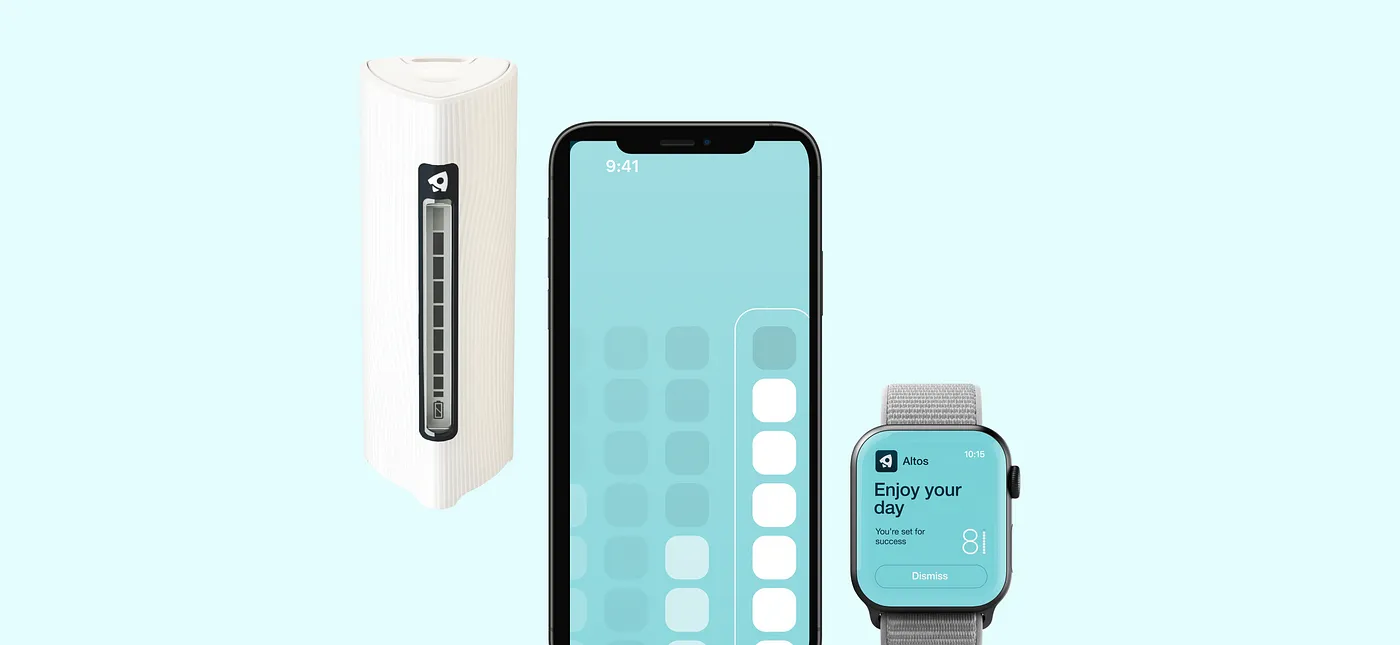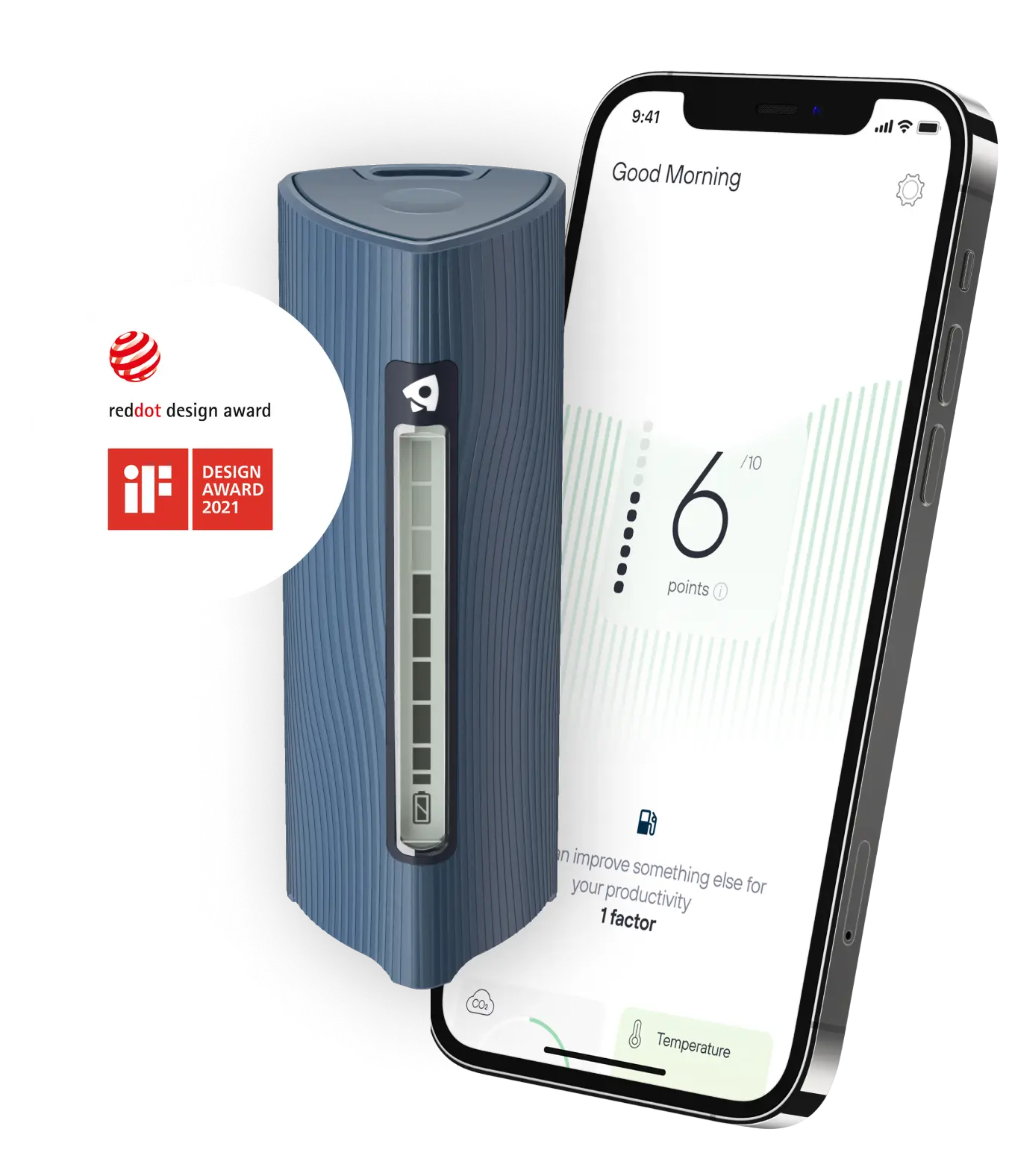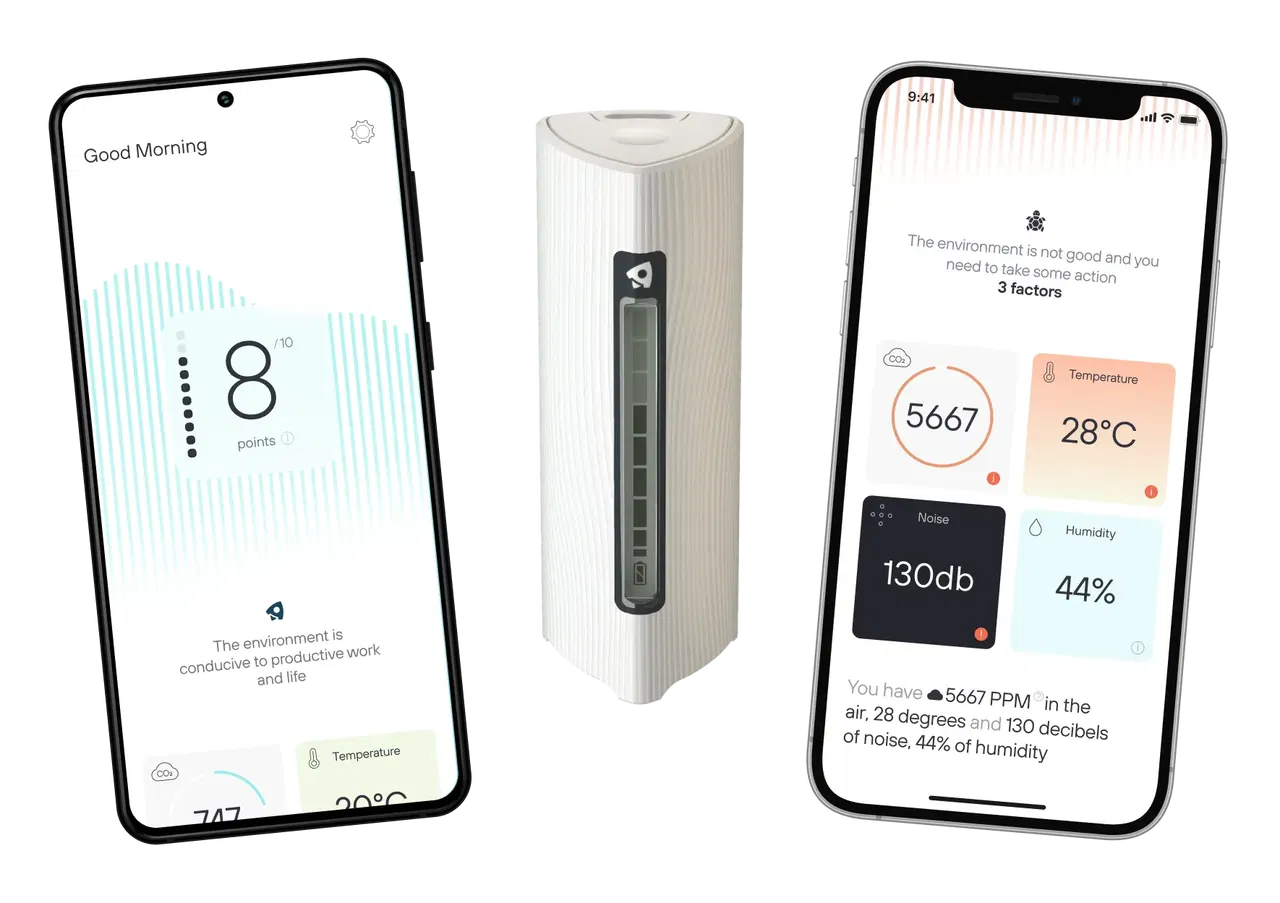How Air Composition Affects Human Cognition
Imagine a meeting room at the end of the day: people are coming and going, the air is stale and stuffy, everyone’s tired and out of ideas. You’re yawning and feel distracted, not able to make any single decision… Sounds familiar? The reason is ridiculously simple, but we often leave it out of account: the air composition doesn’t fit for productive work.
Scientists proved that air composition and, in particular, carbon dioxide concentrations affects our brain performance and might reduce our thinking process efficiency.
Air Quality vs. Air Composition
Over time, air quality has been considered one of the most important indoor environment factors impacting people’s wellbeing. However, air quality is not the same as air composition, and understanding the latter one is far more helpful for our daily activities.
Air quality is a complex index of pollutants’ presence, indicating the real health-hazard danger where these pollutants show greater concentrations.
Air composition, in its turn, shows the percentage of gases in the air.
Even as it sounds too simple and inconsiderable, the impact of some gases on our well-being shouldn’t be underestimated.
In particular, CO2 concentration’s effect on our cognitive functions might be critical, especially where strategic thinking and high decision-making performance are crucial. And, unlike air quality, CO2 levels can change very fast and unnoticeable, leaving your brain with no fuel for productive work, even when one person breathes normally in a non-ventilated room.
CO2 and Human Brain: Scientific Research
For a long time, it has been thought that CO2 is just an indicator of air ventilation efficiency but not a direct pollutant. A few years ago, several studies performed by researchers from Harward, SUNY, and Syracuse University revealed that CO2 influences not only people’s wellbeing but impairs cognitive functions, even at concentrations considered acceptable for health.

In the course of these studies, people of various jobs that needed intellectual efforts (designers, programmers, engineers, managers, etc.) were exposed to varying concentrations of carbon dioxide while performing their work tasks in their usual way.
Air quality conditions were kept constant, while the CO2 concentrations changed from the lower — 450–500 parts per million (ppm) — to higher, but not uncommon, 1400 ppm. Then, participants got through higher-order cognitive functions assessment using the specialized software designed to test the effectiveness of management-level employees.
Nine higher-order cognitive functions domains were examined at the end of each day of the experiment:
Basic Activity Level — Overall ability to make decisions at all times
Applied Activity Level — Capacity to make decisions that are geared toward overall goals
Focused Activity Level — Capacity to pay attention to situations at hand
Task Orientation — Capacity to make specific decisions that are geared toward completion of tasks at hand
Crisis Response — Ability to plan, stay prepared, and strategize under emergency conditions
Information Seeking — Capacity to gather information as required from different available sources
Information Usage — Capacity to use both provided information and information that has been gathered toward attaining overall goals
The breadth of Approach — Capacity to make decisions along multiple dimensions and use a variety of options and opportunities to attain goals
Strategy — Complex thinking parameter that reflects the ability to use well-integrated solutions with the help of optimal use of information and planning
Seven of these cognitive domains showed a significant increase when the participants were exposed to CO2 concentrations at approximately 550 ppm compared to the higher CO2 levels. Even at the conventional level of ~950 ppm acceptable by all indoor environment quality standards, participants’ cognition suffered noticeably. On average, cognitive scores were 61% higher at 950 ppm exposure and 101% at 550 ppm than in the poorly ventilated environment (~1400 ppm).
The largest effects were seen for the following cognition indicators:
CO2 and Human Brain: Scientific Research
For a long time, it has been thought that CO2 is just an indicator of air ventilation efficiency but not a direct pollutant. A few years ago, several studies performed by researchers from Harward, SUNY, and Syracuse University revealed that CO2 influences not only people’s wellbeing but impairs cognitive functions, even at concentrations considered acceptable for health.

In other words, the higher the CO2 ppm concentration, the fewer chances you’re able to apply information to solving tasks, respond to unforeseen situations, and make strategic decisions.

Remember the story of Steve Jobs taking colleagues for a walk to discuss some important matters? It works perfectly as the air composition outdoors is well-balanced for your brain to work at its full capacity.
So, get some fresh air, and the decision will come.
Altos on guard for your productivity
Keeping in mind all the above said, we developed Altos — your personal CO2 meter. What’s so special?

-
Technology . Using the precise Swiss-made sensor, Altos measures CO2 directly to build a clear picture of the air composition impact on your brain.
-
Portability . Unlike most CO2 measuring devices, Altos is as small as a keychain so that you can carry it around wherever you go. At home, in the office, in a car — everywhere you need to stay focused.
-
Brain Fuel ™. Not to bother you with interpreting complicated numbers — 948 ppm seems to be quite undescriptive — Altos has a simple and readable scale of 9 points designating the air composition states, and short tips on what to do to get more fuel for your brain.

-
Companion app . To make air composition monitoring even easier, we developed the Altos mobile app to free you from looking at the device display: the app will notify you when CO2 level might impair your cognitive performance.
-
Neat design . Last but not least: Altos, even though being a sophisticated hardware device, looks like a stylish accessory. Distinguishing shape, flowing lines, restful colors, and thoughtfully designed accessories make Altos the perfect day-to-day companion for your wellbeing care.
Stay tuned for more!
776
Verified 5-star reviews*
People love that Altos creates healthier spaces, boosts productivity & improve sleep
Clean Air,
Clear Mind
776+ Reviews
Air quality data, productivity insights, focus optimization, and environmental awareness in one convenient device.
$299
$249
Get ALTOS
Free shipping on all orders!


